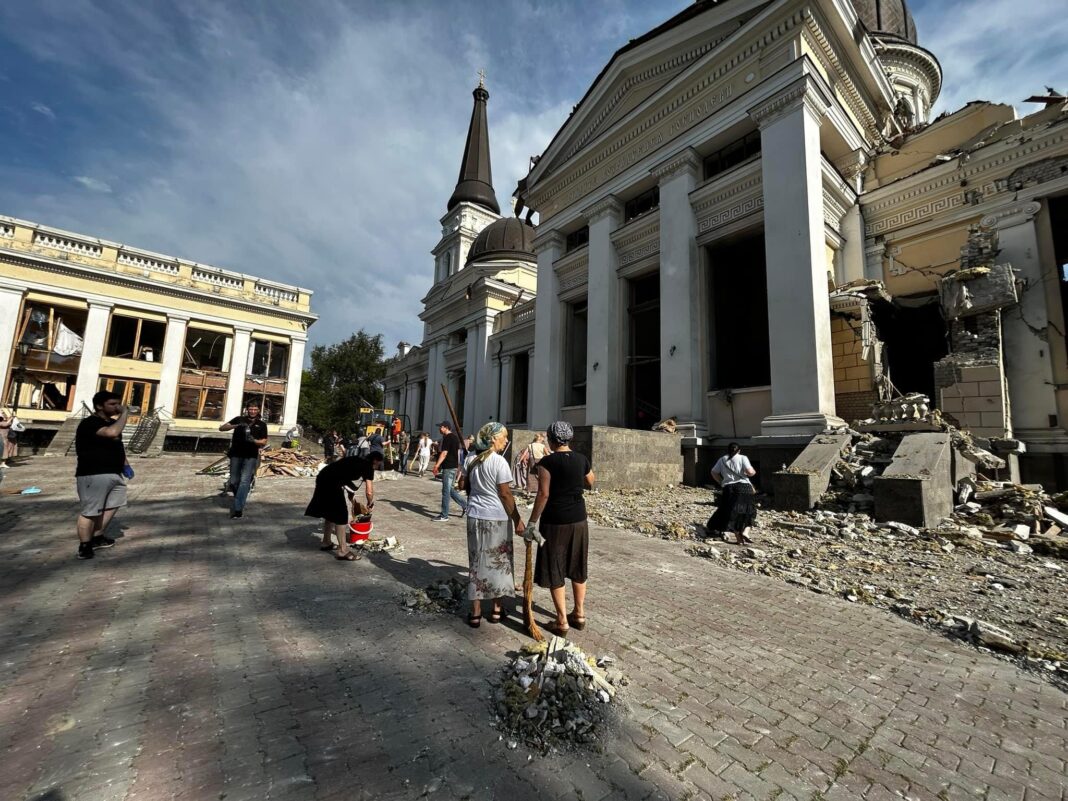In a tragic turn of events, Russia carried out a missile attack on the port city of Odesa, resulting in the death of two people and leaving many wounded. The strike also caused severe damage to a UNESCO-listed Orthodox cathedral, drawing widespread condemnation.
Ukrainian President Volodymyr Zelensky vowed to retaliate against the deadly attack, which involved 19 missiles and caused injuries to 22 others. He expressed his outrage at the targeting of peaceful cities, residential buildings, and a sacred cathedral, promising a response against the “Russian terrorists” responsible for the attack.
The UNESCO-listed Orthodox Savior and Transfiguration Cathedral, situated in the historic city center, suffered significant destruction during the attack.
Images revealed the extent of the devastation within the cultural heritage site. UNESCO itself condemned the “brazen” attack, emphasizing the importance of preserving cultural sites and heritage.
Moscow claimed that the attack successfully hit its intended targets, alleging that these sites were being used for planning “terrorist acts” against Russia. However, this justification was widely criticized given the damage inflicted on a UNESCO-listed site.
The situation in Odesa has been escalating since Russia decided to pull out of the Black Sea grain deal, leading to increased bombing of the city. The deal, which facilitated the safe export of Ukrainian grain, was abruptly terminated, prompting accusations from Kyiv that Russia is targeting essential grain supplies and infrastructure.
In the aftermath of the attack, Russian President Vladimir Putin met with Belarusian President Alexander Lukashenko for talks. This meeting came just hours after the devastating strike on Odesa and marked their first encounter since Lukashenko’s involvement in brokering a deal to end a mutiny by Wagner fighters inside Russia the previous month.
A global media for the latest news, entertainment, music fashion, and more.




